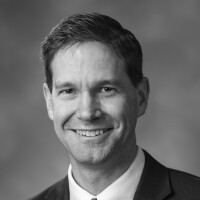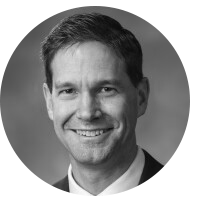Joseph Smith Wives: Insights from Jacob’s Teachings
In the collection of sacred writings, few passages speak as clearly about marriage as Jacob’s teachings. As a powerful prophet, he corrects misunderstandings about marriage and delivers straightforward guidance that can be used in the context of Joseph Smith wives. Jacob’s words cut through confusion, revealing the basic law of marriage: one man should have only one wife and no concubines. This command comes from the Lord Himself and is without doubt. While some debate the past practice of plural marriage, the stories in our holy texts consistently feature one man and one woman, emphasizing monogamy’s importance. Jacob’s teachings answer why the early church practiced plural marriage: it was a special command from God, given to increase righteous generations. As we explore Jacob’s wisdom, let’s remember that understanding history and commandments takes time, and faith guides our journey.
Many believe there is no place in all of our scriptural canon that is more clear, succinct, and direct on what God expects regarding marriage than what Jacob gives right here in society. He’s now in charge as the Prophet to correct this wrong that he’s seeing. He cuts straight to the core here, so this is the most simple definition of the law of marriage of anything seen in all of scripture. Jacob 2:27 says, “Wherefore my brethren hear me and hearken to the word of the lord”. So he’s not saying that he is just giving this as his opinion; he is now speaking for the lord with some pretty powerful authority. It goes on saying, “There shall not any man among you have to save it be one wife and concubines he shall have none” That’s the law, and he could be any more succinct or direct or clear about one wife and no concubines.
There have been a lot of things written about polygamy through the years, like Joseph Smith wives, and in our church history as well as in the past. The reality is some people have been taught that this is the higher law or this is what everyone’s going to be living someday. If that were the case, I find it very interesting that all of our major stories and all of our books of scripture begin with one man and one woman. Look at the Old Testament with Adam and Eve. It’s not Adam and Eve and Alice – it’s just Adam and Eve. Your New Testament begins with Zacharias and Elizabeth with Mary and Joseph – it’s always one man and one woman. Even The Book of Mormon begins with Lehi and Sariah. These stories in church history all began with Joseph Senior and Lucy – it’s one man and one woman.
Now that brings up the question some are wondering which is: Why did our church live the law of plural marriage? Jacob addresses that in verse 30: “For if I will, sayeth the lord of Hosts” when he refers to the Lord of Hosts or the Lord of Sabbath. If you look at the titles for God that Jacob uses, he just says God, sometimes Lord, sometimes Lord God. Here he says Lord of Hosts – many usually just pass by that. God is many things, but he’s the Divine Warrior, and the Hosts of Heaven are his military escort. If you mess with God and you want to take him on, he is the ultimate power. When he says I, the Lord of Hosts, it means to not even think about doing this without my express allowance of you doing it. Because I’m the Lord Host, and if you start doing this on your own without me commanding it, you’re in big trouble, and I’m bringing all the military after you. Jacob uses that very specific title, and it’s unsure if he understood all the Hebrew titles of God that he would say in this context. He uses Lord of Hosts to actually indicate how serious God takes this. He does not want you to do things he doesn’t want you to do.
Throughout The Book of Mormon, the titles that the Prophets and the writers use for him whenever they’re using Lord of the Sabbath or Lord of Hosts is this idea of justice and judgment, because people have broken the covenant. Notice verse 28 “For, I, Lord God, delight in the chastity of women. And whoredoms are an abomination before me; thus saith the Lord of Hosts.” The Lord delights clearly in the chastity of men as well. With Jacob’s audience, he’s telling the women and children that he is so sorry they have to hear this, but his audience is the man. He’s hitting these men directly, and he’s telling them that the Lord delights in the chastity of the women. And this can be applied in the context of Joseph Smith wives, specifically. When they take that away, they are now going to deal with the Lord of Hosts. Verse 29 states: “Wherefore this people shall keep my commandments, saith the Lord of Hosts, or cursed be the land for their sakes.” This is the justice and the judgment side.
Now verse 30, the exception, says, “if I will, saith the Lord of Hosts, raise up seed unto me, I will command my people; otherwise they shall hearken unto these things.” Many would not be here if the lord had not commanded plural marriage to be lived as an exception from the 1830s through 1890. He’s very clear when the exception is going to come because he commands it in order to raise up seed. Ultimately now, there are things that Joseph Smith did that would scratch heads and have people wonder why he did that with plural marriage, of course. That’s an example of where God often gives a command, but he doesn’t always give you the handbook up front, and he lets you use your agency and figure things out. So those early saints tried to figure this out, and sometimes there were some struggles along the way, and it’s okay. As Elder Neal Anderson said, on one occasion, let’s give Brother Joseph a break; let’s give him the benefit of the doubt for now as we move forward.

By Dr. Tyler Griffin, Source Expert
Dr. Tyler Griffin embarked on his professional journey by teaching seminary courses for a period of six years in Brigham City, Utah. Following that, he dedicated the subsequent seven years to instructing at the Logan LDS Institute, located adjacent to Utah State University. Alongside his participation in the Seminary Preservice program, he spearheaded and supervised the implementation of the online seminary program. Dr. Griffin has been an educator at BYU for well over a decade and holds a co-founding position within the BYU Virtual Scriptures Group. His undergraduate degree is in Electrical Engineering, while both his master’s and doctorate degrees center around Instructional Technology. Dr. Griffin is the exclusive author of “When Heaven Appears Distant” co-author of “Come Unto Me: Illuminating the Savior’s Life, Mission, Parables, and Miracles” and co-editor of “Millions Shall Rediscover Brother Joseph.”

Fact Checked by Mr. Kevin Prince, Source Expert
Kevin Prince is a religious scholar and host of the Gospel Learning Youtube channel. His channel has garnered over 41,000 subscribers and accumulated over 4.5 million views. Mr. Prince also created the Gospel Learning App, a reliable platform where individuals seeking truth can access trustworthy answers to religious questions from top educators worldwide.
About Mormonism Explained
Mormonism Explained is a resource that was designed to provide objective and factual information about Mormonism, its history, doctrines, and policies. Our team of researchers consults experts and primary sources to present factual information on a variety of topics relevant to the Mormon Church.
Tags

